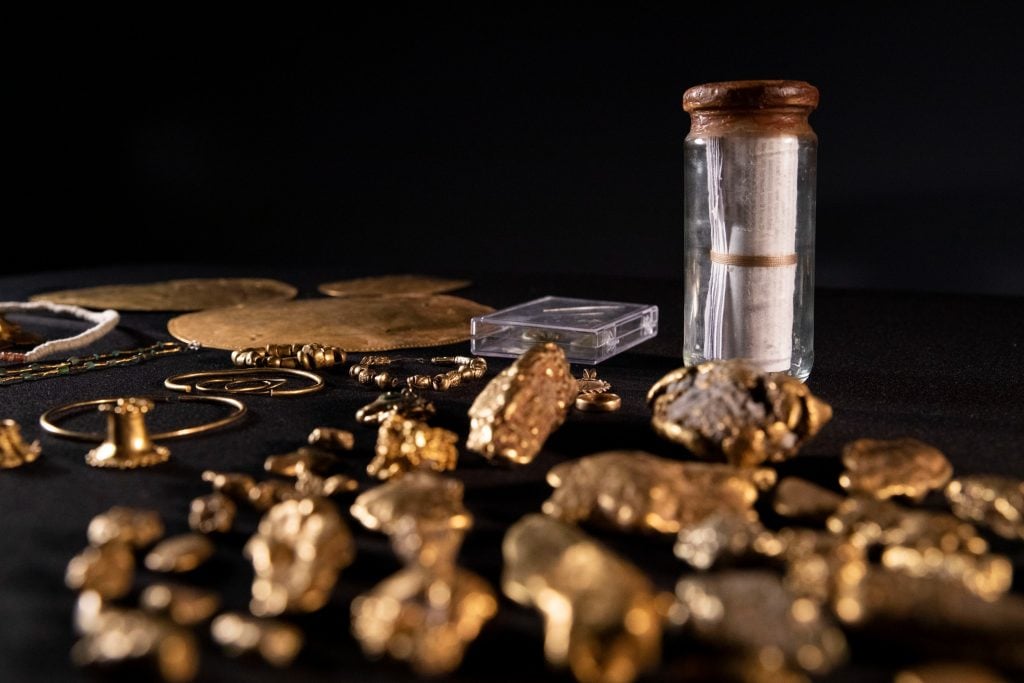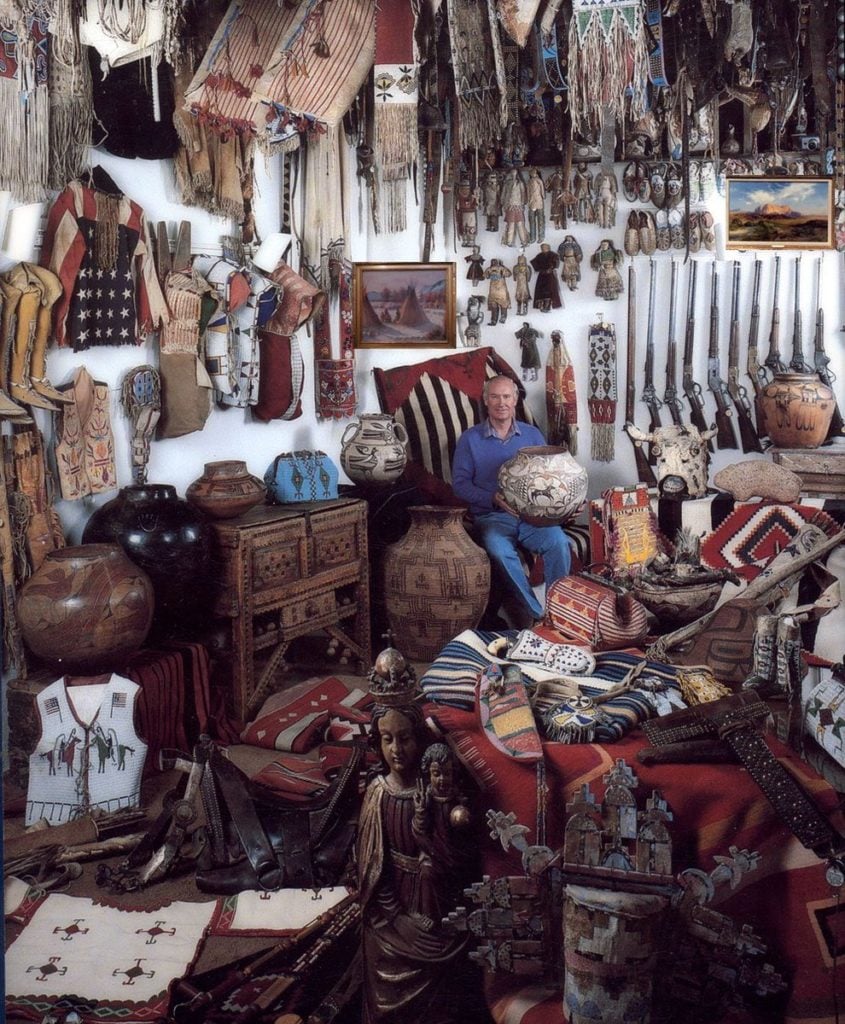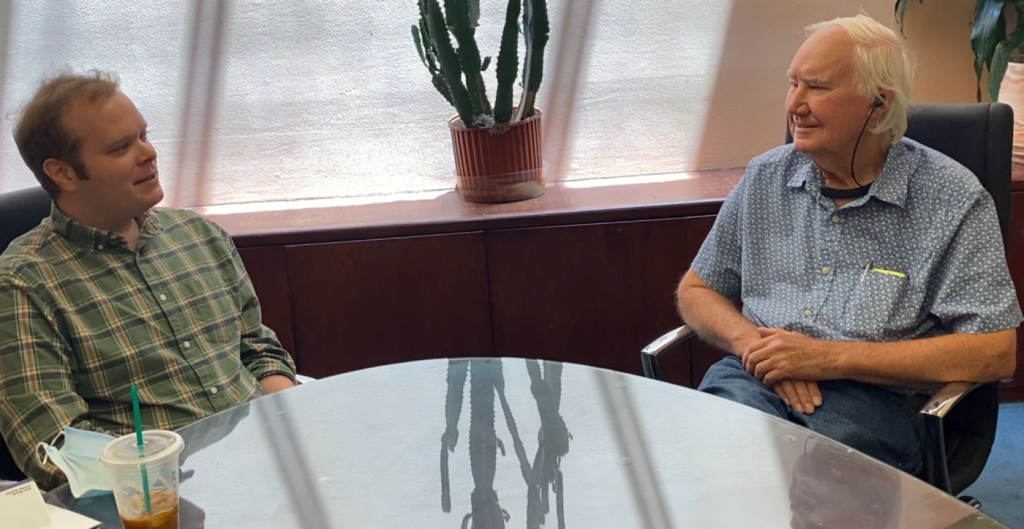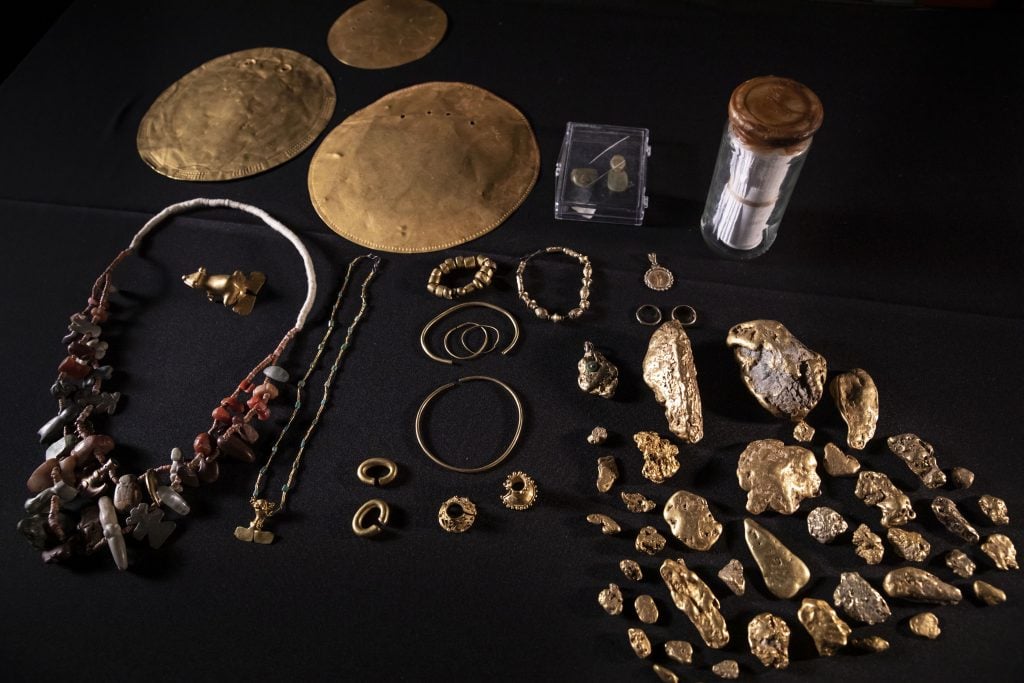Archaeology & History
The Hunt: An Eccentric Art Dealer’s Buried Treasure
Forrest Fenn's treasure trove may have been found, but the hunt continues.

The thrill of the treasure hunt is greater than just the potential bounty of gold and rubies. The fact that people continue to search for the spot where Forrest Fenn buried his treasure chest, despite knowing that it has already been found, is evidence enough.
Forrest Fenn, a former war plane pilot turned art dealer, was the idiosyncratic millionaire who famously hid a bronze treasure trove worth $2 million somewhere in the Rocky Mountains of Wyoming in 2010. He encoded the secrets to finding its location within a six-stanza poem in his memoir. It concludes:
So why is it that I must go
And leave my trove for all to seek?
The answer I already know
I’ve done it tired, and now I’m weak.
So hear me all and listen good,
Your effort will be worth the cold.
If you are brave and in the wood
I give you title to the gold.
Fenn’s treasure hunt quickly became America’s most extraordinary treasure hunt. His intention for his game was to encourage the masses to explore and reconnect with the wild, fueled by the spirit of adventure with the possibility of a trove of riches at the other end. He succeeded in his mission, with tens of thousands of hunters taking on the quest.

Forrest Fenn. Courtesy of Forrest Fenn.
The hunters formed a tight community, both online and in person, with campers gathering annually at Hyde Memorial State Park to participate in Fennboree, which is exactly what it sounds like, a jamboree celebrating Fenn. People reorganized their entire lives to be closer to their states where they suspected the treasure was cached, searching obsessively—for a few, at the cost of their very lives.
Many of the adventurers were novice outdoorsmen and women, inexperienced with the demands of the unforgiving wilderness. Sadly, five men are confirmed to have died during their hunts by falling, or drowning, or hypothermia. (The 2022 Apple podcast series, Missed Fortune, followed the journey of one such obsessive seeker.) When their loved ones, and the police, contacted Fenn demanding he call off the hunt, he refused. In 2016, Fenn explained his reasoning: “In the summertime, we jump in a swimming pool. But if someone drowns in a swimming pool, should we drain the pool, or should we teach people to swim? That’s the way I feel about it.”

Forrest Fenn and Jack Stuef, who found his hidden treasure. Photo by Jack Stuef.
The 42-pound treasure chest and its contents were finally unearthed by Jack Stuef in 2020. The then-medical student had initially fought to remain anonymous—for fear he would be harassed by fellow treasure hunters and Fenn fans, some of whom viewed his find as suspicious. Conspiracy theories sprouted across the internet accusing Stuef of being planted by Fenn. The treasure was found in the summer of 2020, only a few months before the dealer’s death. Some theorize that, facing a terminal cancer diagnosis, and reluctant to leave the threat of the hunt’s costs on his family, Fenn arranged for Stuef to discover the treasure.
In a Medium post disclosing his identity, Stuef refuted these theories, including a lawsuit brought against him by a woman who claimed he had stolen her “solve,” what Fenn hunters called their interpretation of the clues in his poem. “This treasure hunt was not a referendum on anyone’s intelligence or abilities,” Steuf wrote. “Rather, it was a fun challenge based on figuring out what the words of a poem meant to the elderly man who wrote them, and nothing more than that.”

A set of items from Forrest Fenn’s treasure. Photo by Lynda M. González/Heritage Auctions.
In 2022, the Fenn cache went up for auction, after Steuf parted with it in a private transaction. For the first time, the public could view its fabled contents, which included gold coins, ancient jewelry, and a wax-sealed jar purportedly holding Fenn’s 20,000-word autobiography. The sale netted a little more than $1.3 million, with the top lot, a 549-gram gold nugget, fetching $55,200.
Still, the hunt is not over for Fenn’s most ardent enthusiasts. Many continue to search for the spot where Steuf found the treasure, as reported by Outside, by attempting to parse his search technique and even his email address. In an earlier story about his find, Stuef told the publication: “I thought that whoever found the chest would be absolutely hated, because it ends everyone’s dream… I realize I put an end to something that meant so much to so many people.” The dream, it turns out, is far from over.
The Hunt explores art and ancient relics that are—alas!—lost to time. From the Ark of the Covenant to Cleopatra’s tomb, these legendary treasures have long captured the imaginations of historians and archaeologists, even if they remain buried under layers of sand, stone, and history.





